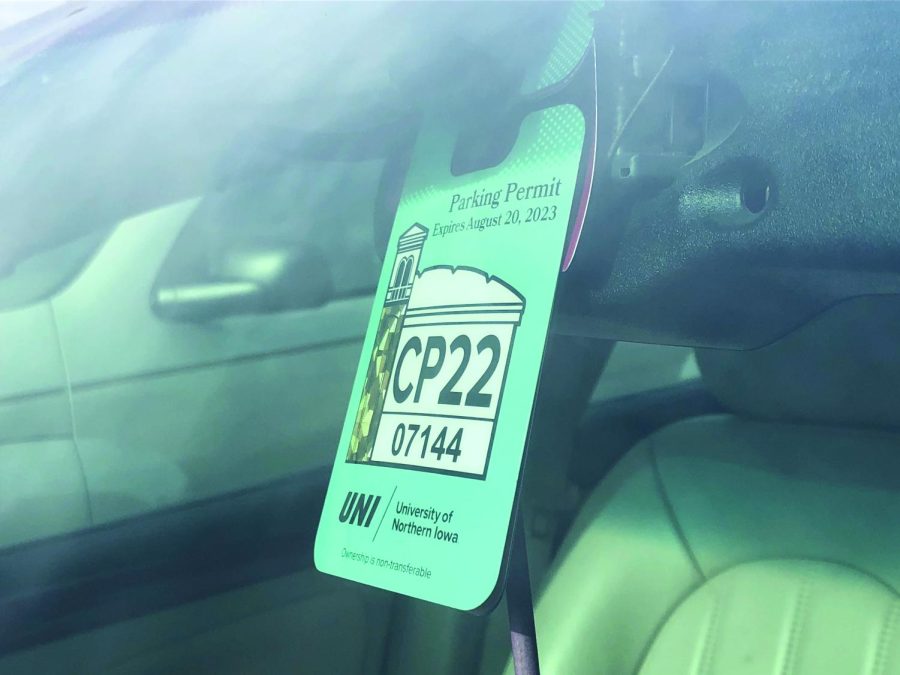Many students at the University of Northern Iowa have pets. Some students bring their pets to their dorms, some have pets in their apartments or houses and some leave their pets with their parents. Other students find the expenses of pets to be higher, and students find themselves busier than normal. Students at UNI are allowed to have pets on campus after getting approval through the appropriate channels.
A survey sent out to UNI students revealed that 97% of participants find themselves more lonely without their pets. There’s a range of reasons why some students cannot bring their pets with them. Sometimes it’s as simple as a lack of funds or space. A respondent wrote, “my dog has to stay with my in-laws because our landlord doesn’t allow dogs.”
University policy states “Service animals (as defined by the federal Americans with Disabilities Act), assistance animals (as defined by the federal Fair Housing Act), and working animals (as defined by this policy), are permitted as provided by law and this policy.”
48% of survey respondents are unaware of the acts and policies that allow pets on campus. ADA was updated on March 15, 2011, and only dogs are recognized as service animals under titles II and III of the ADA. These titles are what permit service animals to accompany their handlers. FHA exists to prevent discrimination against homeowners. If someone needs to have their service or assistance animal with them but it isn’t allowed in the lease, the FHA requires landlords to make a reasonable accommodation to allow the animal.
An example of a service animal is a guide dog for someone who is visually impaired. Service animals work alongside their handler offering assistance. Assistance animals, or emotional support animals, are allowed with approval from student accessibility services. Students who have assistance animals have to register their animal as an ESA, and a professional will provide a letter to the student granting permission. Pet owners can easily register their animals as ESAs through designated online websites. UNI also allows working animals, which serve an educational or research purpose. Companion animals are allowed in designated pet-communities, which must be approved by Housing and Dining. Companion animals are simply owned for leisure purposes and enjoyment.
“Companion animals with a valid license, current vaccinations, under proper restraint (e.g. leashed), and accompanied by their owners, are permitted on campus grounds – but prohibited from entering campus facilities (e.g. administrative and academic buildings; residential facilities except where approved by the Housing & Dining Department), and from being on campus athletic and recreation fields.”
If students choose to bring their pets to campus, there are written ownership requirements provided by Housing and Dining. “Providing appropriate restraint, control and supervision of animals at all times. Providing animals with appropriate care, including food, water, shelter, health care and humane treatment. Cleaning up and disposing of all animal waste (both indoors and outdoors) in a timely and effective fashion. Confining animals when leaving them alone in a university-owned residence; and not leaving animals alone for more than six consecutive hours per 24 hours. Not allowing odor, noise, damage, or other behavior of animals that disturbs others or damages university grounds, facilities or property. Having animals wear a current Cedar Falls, Iowa pet license, rabies vaccination tag, and personal identification tag when applicable.”
While 88% of students find that their pet improves their success academically, 22% of respondents don’t believe they have enough time to care for their pets. Class schedules and school organizations can impact the amount of time students spend with their furry friends.
Cedar Falls and UNI have similar regulations with pet ownership. Owners need to make sure that their pets aren’t a nuisance, and owners are responsible for providing adequate care for their pets. In Cedar Falls, pet owners have to have licenses for their pets. Sect. 6-44 of Cedar Falls city ordinance states, “The owner of a dog or cat for which a license is required shall, on or before January 1 of each year, apply to the city clerk or designee for a license for each owned dog or cat.”
There are certain exceptions to the licensing of pets, and according to Sect. 6-51 of Cedar Falls city ordinances, “The requirements of this article for licenses for dogs, cats and poultry shall not apply to dogs, cats or poultry that are under the control of the owners or handlers and which are in transit or to be exhibited, or to nonresidents of the city, if they are in the state for less than 30 days, or which are assigned to a research institution or like facility.”
Sixty-seven percent of respondents aren’t aware of the rules and regulations of pet ownership within Cedar Falls. On Sept. 5 2024, the Cedar Falls Animal Control Task Force met to discuss a new part of their animal control ordinances. Cedar Falls Police Chief Mark Howard “proposed hiring two part-time civil personnel to be the fully trained animal control staff to work the high call-volume hours; their main function once trained will be to liaise with CBHS and train other Public Safety staff with the option to assist with other duties as appropriate.”
The ordinances for pet ownership are consistently updated and changed as the number of pets in Iowa increases.




















